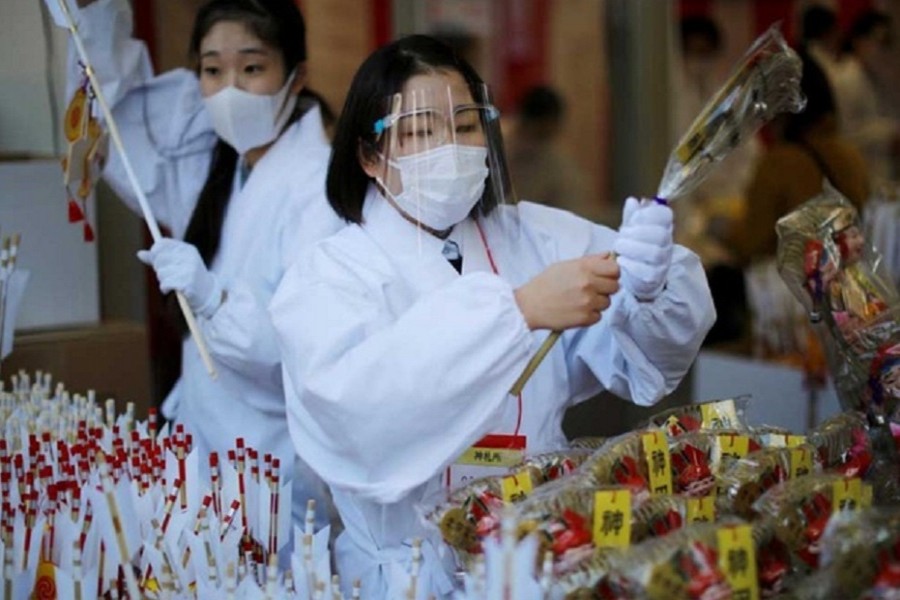Japan said on Monday it would consider declaring a state of emergency for the Greater Tokyo metropolitan area as coronavirus cases climb, casting fresh doubt over whether it can push ahead with the Olympics and keep economic damage to a minimum.
The emergency declaration would mark a reversal for Prime Minister Yoshihide Suga, who has resisted any such drastic steps despite criticism that the government was acting too slowly.
Japan saw a record 4,520 new cases on Dec 31, prompting the capital, Tokyo, and three neighbouring prefectures to seek an emergency declaration from the national government. There were 3,158 new cases on Sunday, according to public broadcaster NHK; Tokyo and its environs accounted for about half of them.
"Even during the three days of the New Year's holidays, cases didn't go down in the greater Tokyo area," Suga told a news conference.
"We felt that a stronger message was needed," he added, when asked to explain the change of heart on a potential emergency declaration.
Suga did not say when the government would make a decision, or what restrictions would follow. The first state of emergency, declared last spring, lasted more than a month, shutting down schools and non-essential businesses.
In the absence of specifics, hundreds of thousands took to Twitter to express dismay and confusion.
"This morning the news said it's 200 days till the Olympics, and in the afternoon, that there could be another state of emergency. What's going on?" tweeted user Mii Mama.
Since the start of the pandemic, Japan has recorded more than 245,000 cases and about 3,600 deaths.
Although the figures pale in comparison to those of many parts of Europe and the Americas, Suga has the challenge of hosting the Olympics in Tokyo this summer after the pandemic caused the Games' first-ever delay in 2020.
That task has been made more difficult by the discovery last month of a new, highly infectious variant of the coronavirus. That prompted Japan to temporarily ban non-resident foreign nationals from entering the country.
Still, Suga repeated the government's pledge to continue preparations for the Games, adding the country would aim to start vaccinating residents by the end of February.
SHARES FALL
Japanese shares fell on the year's first day of trading, reacting to news of the potential state of emergency.
Although Japan has relied on voluntary closings rather than the sort of rigid lockdown measures seen elsewhere in the world, Suga said a bill would be submitted to the next session of parliament to give state-of-emergency restrictions more teeth, including penalties.
Suga repeated, however, that many of the new cases with unknown origins were likely linked to restaurants, and that the government's latest request for eateries in the Tokyo area to close at 8 p.m. - rather than 10 p.m. - should be effective.
Toshihiro Nagahama, an economist at Dai-ichi Life Research Institute, estimated that a one-month suspension of non-urgent spending by consumers in Greater Tokyo would reduce gross domestic product by 2.8 trillion yen ($27 billion), or an annualised 0.5 per cent.
"The loss of GDP could throw 147,000 people out of work," he wrote in a note.
A popular subsidised travel programme that was paused for two weeks through Jan. 11 would also stay on hold during a state of emergency, Suga said.


